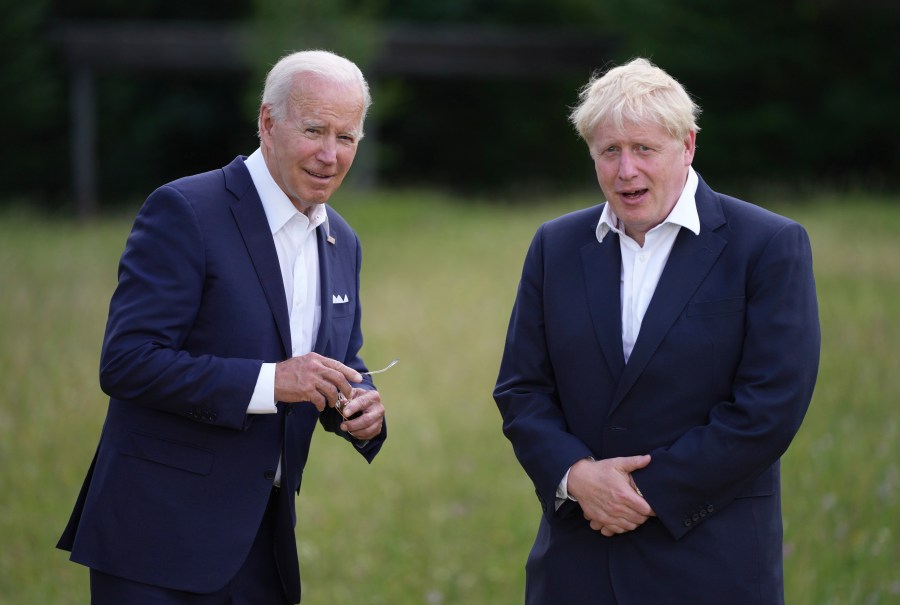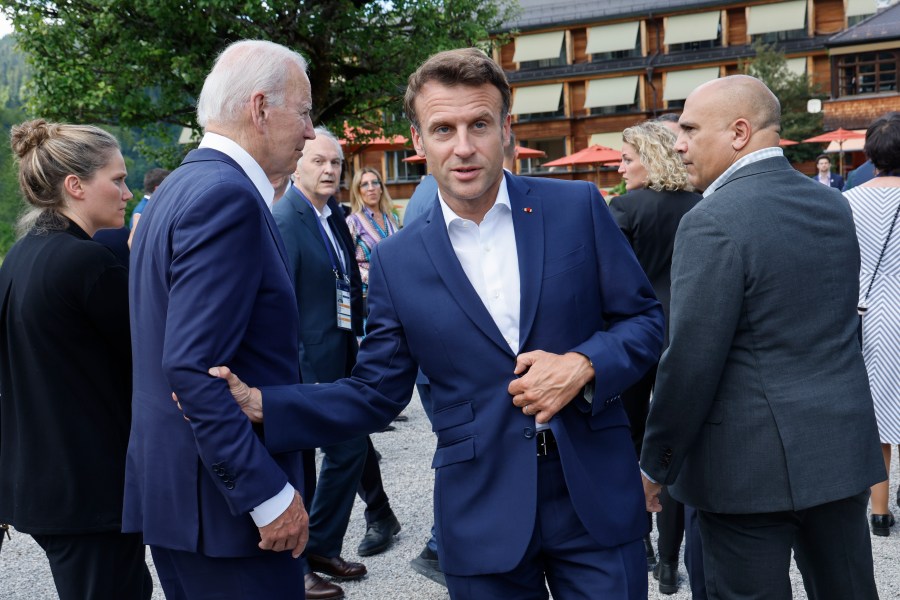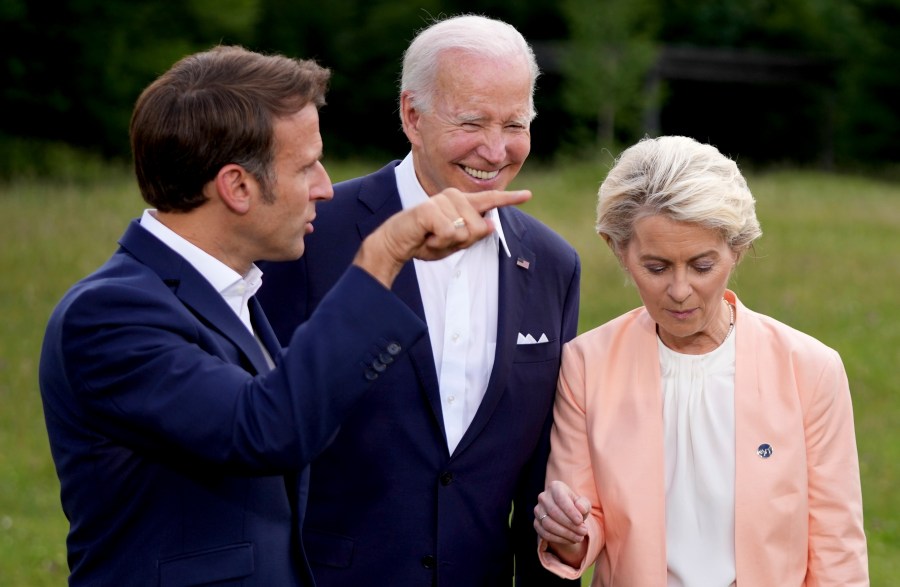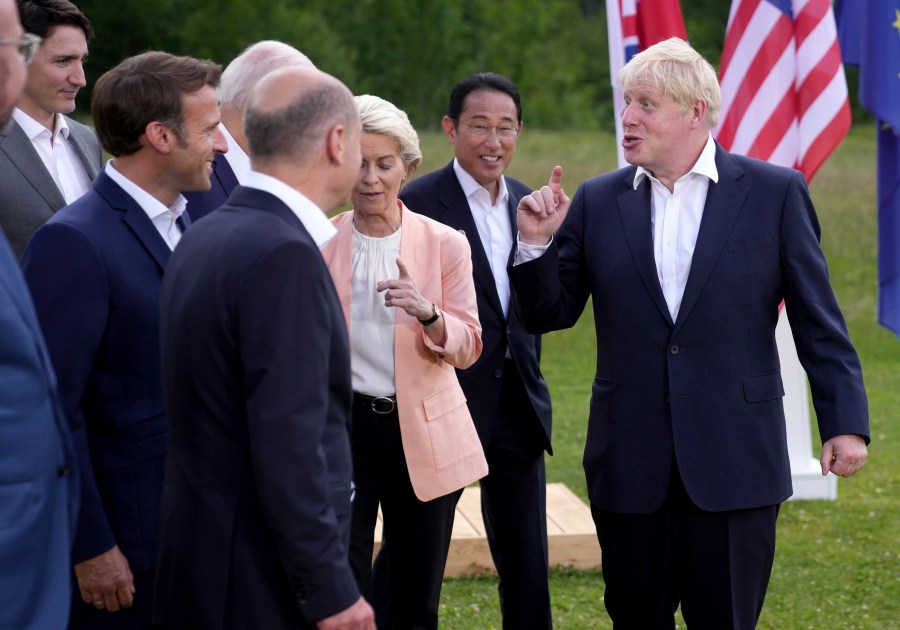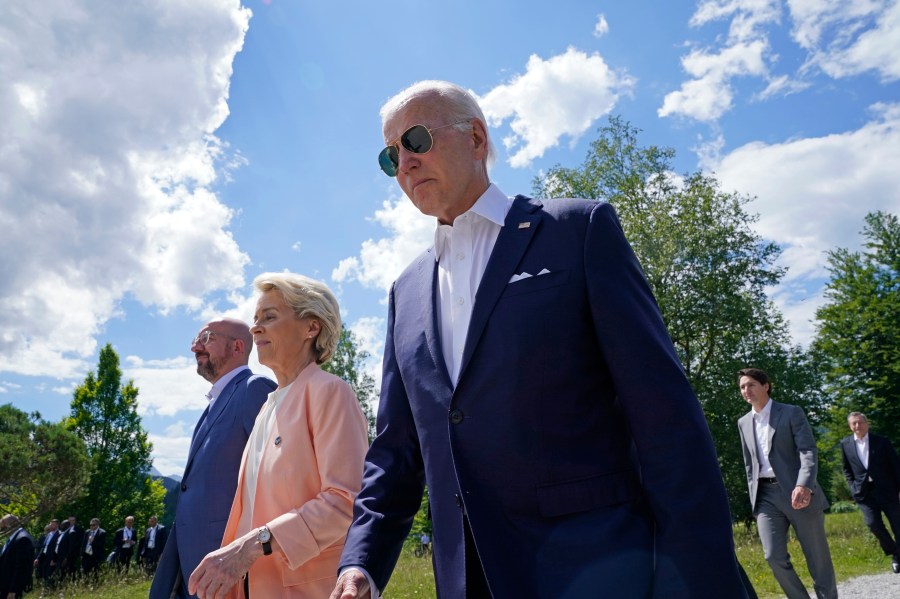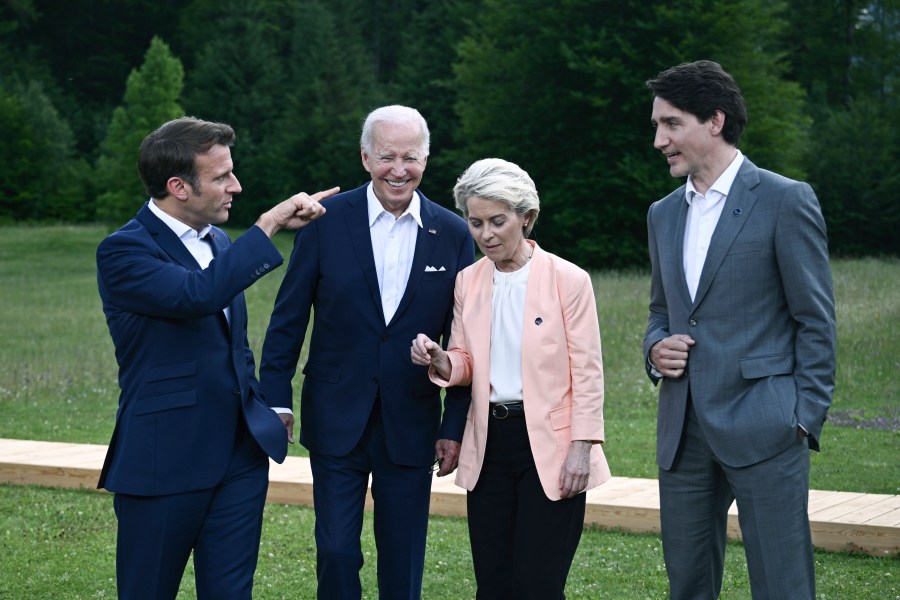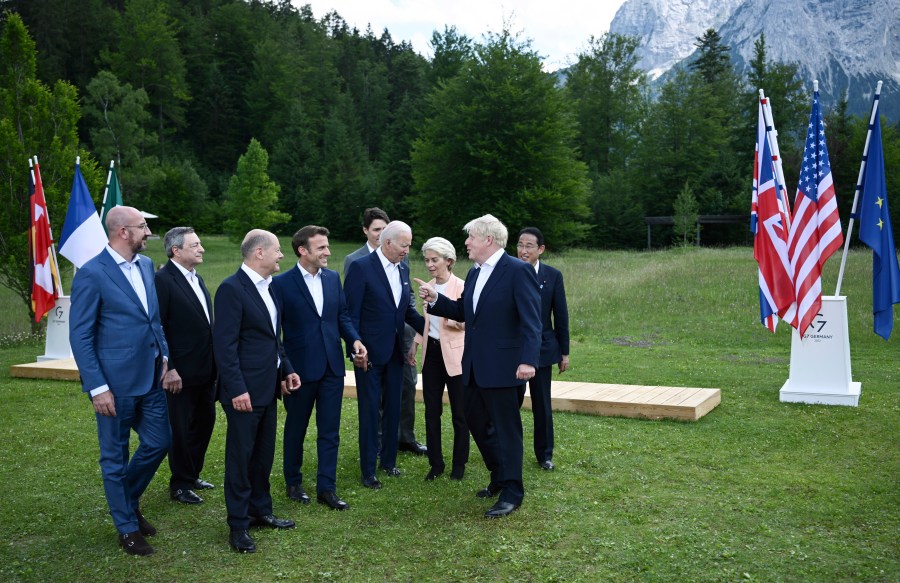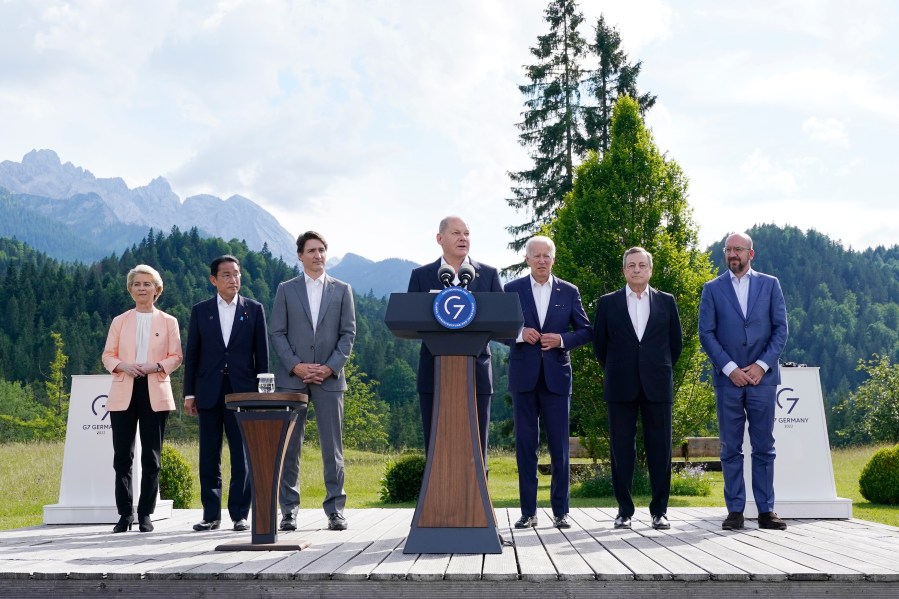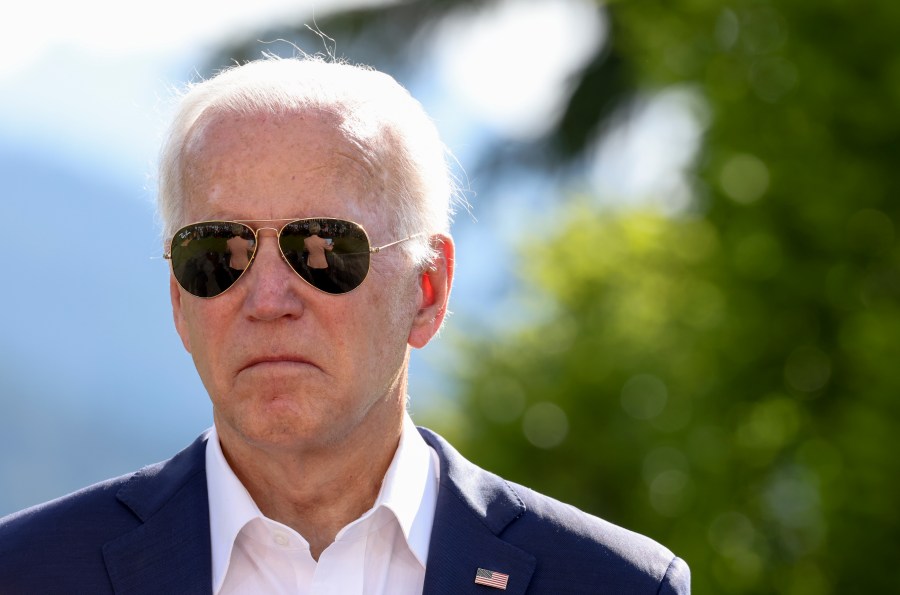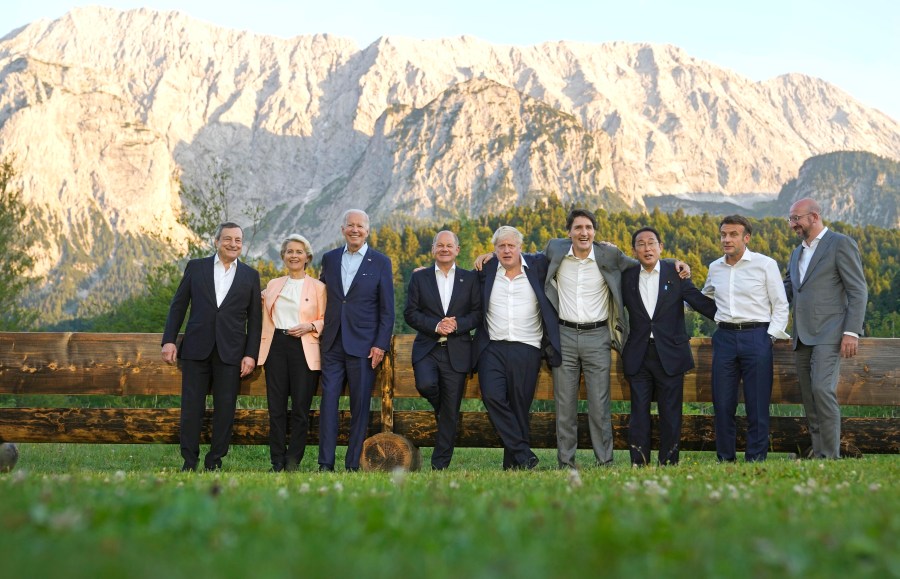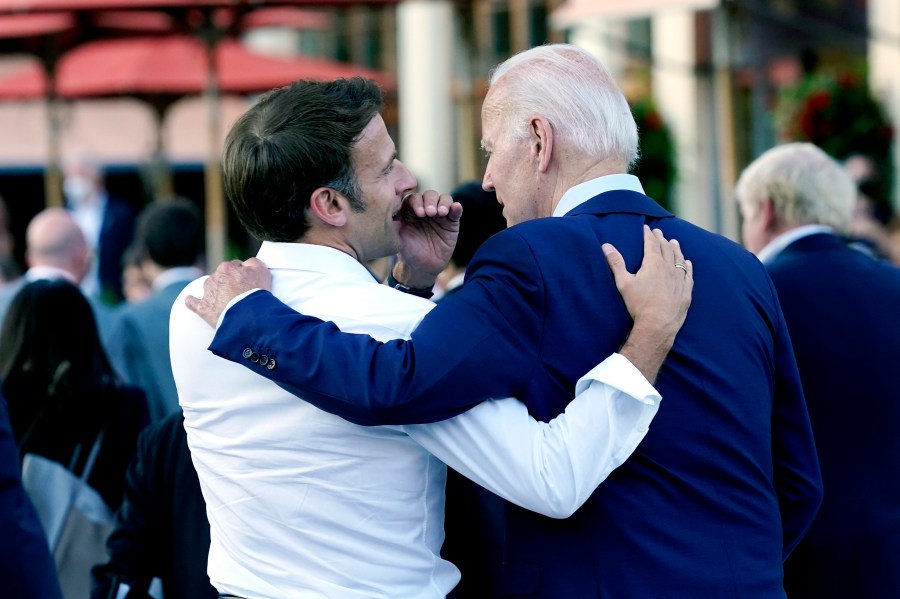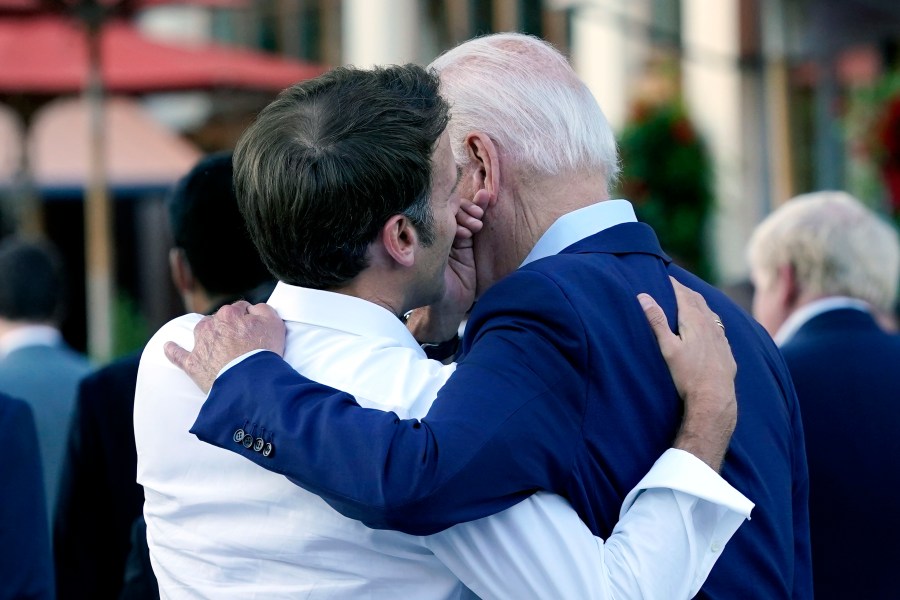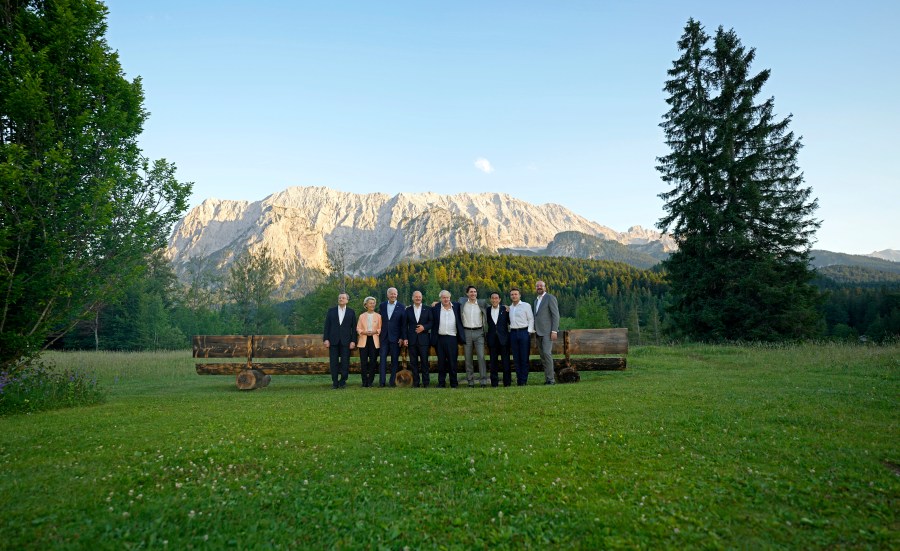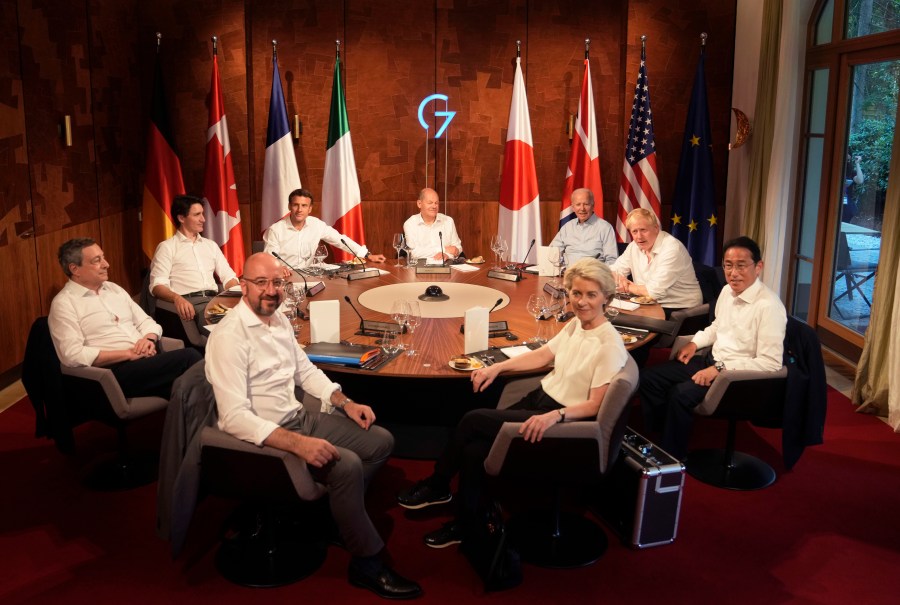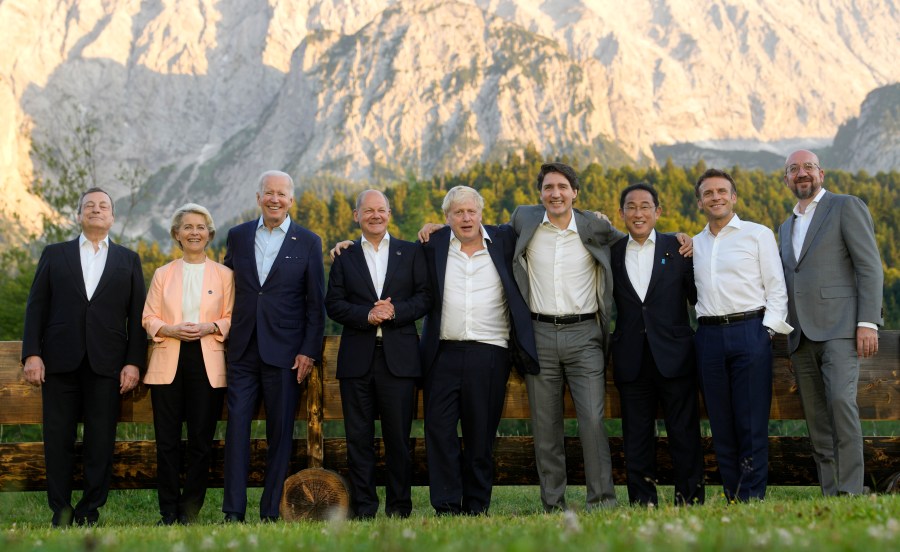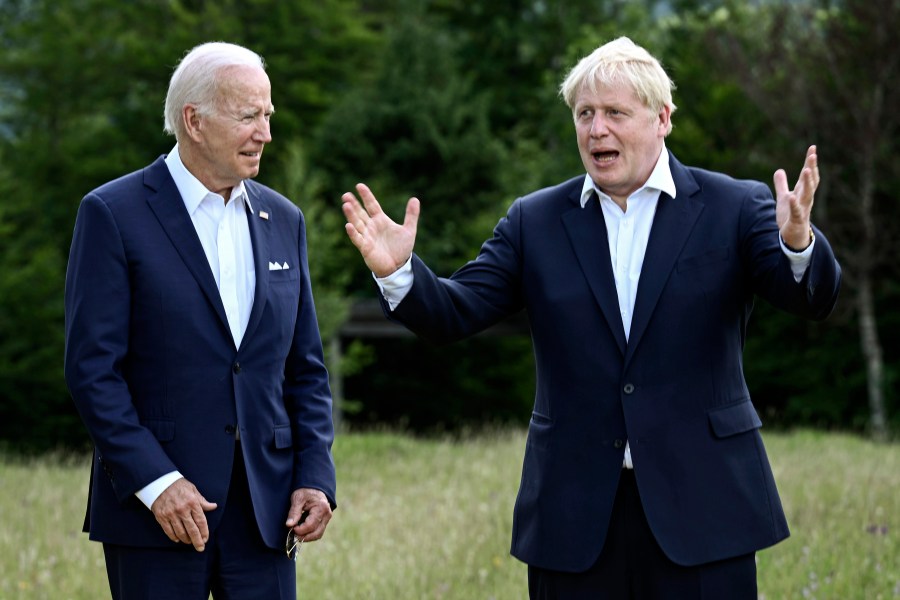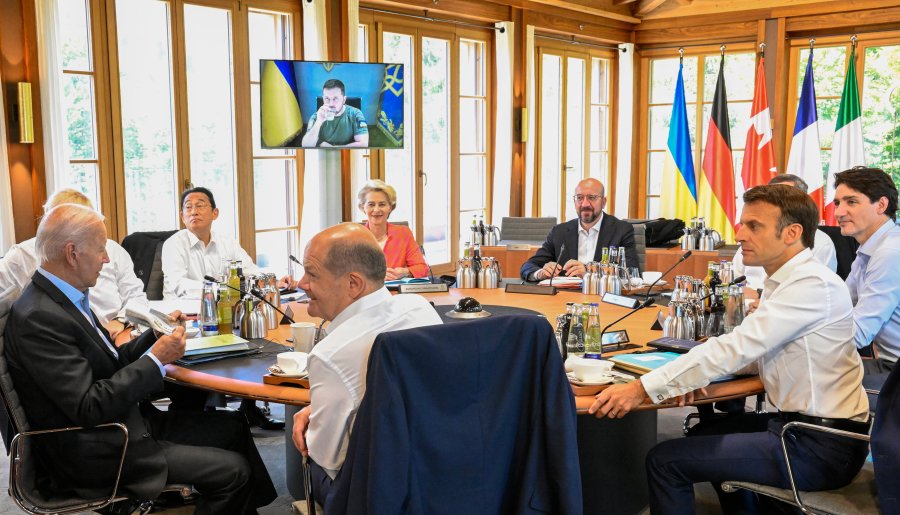(NewsNation) — A historical G-7 summit is focusing on how to hold Russia accountable for its invasion and continued war in Ukraine.
Leading economic powers conferred by video link with Ukrainian President Volodymyr Zelenskyy Monday as they underscored their commitment to Ukraine for the long haul with plans to pursue a price cap on Russian oil, raise tariffs on Russian goods and impose other new sanctions.
The G-7 countries announced they are ready to enact a global price cap on all Russian oil shipments to countries outside the G-7, according to a senior White House administration official. That would limit how much Russia could earn on every barrel of oil they sell.
The new aid and efforts to exact punishment on Moscow from the Group of Seven leaders come as a Zelenskyy has openly worried that the West has become fatigued by the cost of a war that is contributing to soaring energy costs and price hikes on essential goods around the globe.
Leaders were finalizing the deal to seek a price cap during their three-day G-7 summit in the German Alps.
The administration official said that cap is meant to “starve Russia, starve Putin of his main source of cash and force down the price of Russian oil,” which is what pays for Russia’s war in Ukraine.
The details of how a price cap would work, as well as its impact on the Russian economy, were to be resolved by the G-7 finance ministers in the coming weeks and months, according to a senior administration official who spoke on the condition of anonymity to preview the announcements from the summit.
The largest democratic economies will also commit to raising tariffs on Russian imports to their countries, with the U.S. announcing new tariffs on 570 categories of goods, as well as use of sanctions to target Russia’s defense supply chains that support its effort to rearm during the war.
The G-7 countries also announced further sanctions on Russia in industries the U.S. hasn’t sanctioned already, including a ban on Russian gold. New tariffs will be placed on an estimated $2.3 billion worth of products exports from Russia.
The U.S., along with G-7 allies, seemed to agree on continued support for Ukraine indefinitely throughout the conflict.
Morgan Chalfant, who is a White House reporter with The Hill, tells NewsNation’s ‘Rush Hour” that, by in large, U.S. citizens support America’s efforts in Europe.
“The steps the president has taken to support Ukraine and punish Russia has pretty broad bipartisan support and strong support in the country,” said Morgan Chalfant, a White House reporter with The Hill.
The, issue, Chalfant, continued, is the disruption to the global energy market both from the war itself and the penalties and efforts from European counties and for the U.S. to not be reliant on Russian energy.
“So what you’re seeing the president doing is trying to find ways to find alternative sources. For example, next month will be going to Saudi Arabia as part of a broader trip to the Middle East to meet with leaders there. It’s a controversial trip because he’ll be meeting with the Saudi crown prince and it’s possibly a trip that would have happened if there wasn’t this balance and issue with that energy prices” she continued.
In addition, the U.S. was preparing to announce the purchase of an advanced surface-to-air missile system for Kyiv to help Ukraine fight back against Vladimir Putin’s aggression.
Biden is expected to announce the U.S, is purchasing NASAMS, a Norwegian-developed anti-aircraft system, to provide medium- to long-range defense, according to the person familiar with the matter, who spoke on the condition of anonymity. NASAMS is the same system used by the U.S. to protect the sensitive airspace around the White House and U.S. Capitol in Washington.
Additional aid includes more ammunition for Ukrainian artillery, as well as counter-battery radars, to support its efforts against the Russian assault in the Donbas, the person said. Biden is also announcing a $7.5 billion commitment to help Ukraine’s government meet its expenses, as part of a drawdown of the $40 billion military and economic aid package he signed into law last month.
The G-7 leaders began Monday’s session of their three-day summit with a focus on Ukraine. Later, they will be joined by the leaders of five democratic emerging economies — India, Indonesia, South Africa, Senegal and Argentina — for a discussion on climate change, energy and other issues.
The war in Ukraine was already at the forefront of the G-7 leaders’ minds as they opened their summit at the secluded Schloss Elmau luxury hotel on Sunday — just as Russian missiles hit the Ukrainian capital of Kyiv for the first time in weeks.
German Chancellor Olaf Scholz, the summit’s host, said that the G-7 countries’ policies on Ukraine are “very much aligned,” and that they see the need to be both tough and cautions.
Scholz said after meeting Canadian Prime Minister Justin Trudeau on Monday that “we are taking tough decisions, that we are also cautious, that we will help … Ukraine as much as possible but that we also avoid that there will be a big conflict between Russia and NATO.”
He added that “this is what is of essence — to be tough and thinking about the necessities of the time we are living in.”
Biden said Sunday that Russian President Vladimir Putin “has been counting on, from the beginning, that somehow NATO and the G-7 would splinter, but we haven’t and we’re not going to.”
Biden hopes to use his trip to Europe to proclaim the unity of the coalition pressing to punish Russia for its invasion of Ukraine as much as he is urging allies to do even more — seeking to counter doubts about its endurance as the war grinds into its fifth month.
The summit’s host, German Chancellor Olaf Scholz, said last week that he wants to discuss the outlines of a “Marshall plan for Ukraine” with his G-7 counterparts, referring to the U.S.-sponsored plan that helped revive European economies after World War II.
With the war still in progress and destruction mounting by the day, it’s unlikely to be a detailed plan at this stage. Scholz has said that “rebuilding Ukraine will be a task for generations.”
The G-7 already is committed to help finance Ukraine’s immediate needs. Finance ministers from the group last month agreed to provide $19.8 billion in economic aid to help Kyiv keep basic services functioning and prevent tight finances from hindering its defense against Russian forces.
A senior U.S. administration official, speaking on condition of anonymity to discuss private conversations between the G-7 leaders, said the U.S. and Europe are aligned in their aims for a negotiated end to the conflict, even if their roles sometimes appear different.
Scholz and French President Emmanuel Macron have tried to facilitate that through active conversations with Russian President Vladimir Putin and Zelenskyy, while also supplying weapons to Ukraine. The U.S. has largely cut off significant talks with Russia and aims to bolster Ukraine’s battlefield capacity as much as possible so that its eventual position at the negotiating table is stronger.
The endurance of the tough sanctions on Russia may ultimately come down to whether the G-7 and other leaders can identify ways to ease energy supply issues and skyrocketing prices once winter hits, as they seek to disengage from Russian sources of fuel.
Chalfant, however, says the White House has been very careful about actually laying out a prediction, and that they’ve warned that this could go on for months but willing to support Ukraine for a long period of time.
“What they want to do is really supply Ukraine with enough assistance so that it’s in strong enough position once they do get to the negotiation table with the Russians,” Chalfant said Monday.
“U.S. officials have said numerous times thats what they think is going to eventually happen — that Ukraine and Russia are going to have to work this out to bring an end to that war in negotiations, but there’s no sign of that happening anytime soon,” she continued.
The G-7 meeting is sandwiched between a European Union summit last week that agreed to give Ukraine the status of a candidate for membership — kicking off a process that is likely to take years with no guarantee of success — and a summit of NATO leaders starting Tuesday in Madrid.
The leaders of the G-7 — the U.S., Germany, France, the U.K., Italy, Canada and Japan — may hope to make some progress in bringing their counterparts from their five guest countries closer to Western views on sanctions against Russia.
The administration has been trying to emphasize, and articulate, that the sanctions and pressure on Russia are working. For the first time in nearly a century, Russia is going to default on its foreign debt with its economy shrinking by the day.
Scholz also is eager to win over such countries for his idea of a “climate club” for nations that want to speed ahead when it comes to tackling the issue.
The Associated Press contributed to this report.
